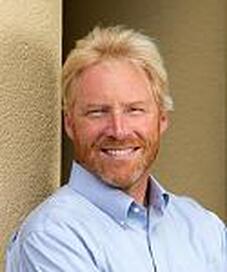Integrating State Level Climate Change
Resiliency Initiatives, Locally
Local governments are on the front lines for planning and implementing climate strategies to minimize expected impacts resulting from climate change. Jay will discuss the changing landscape of environmental protections from the federal level to the state level with an emphasis on Washington State's climate change resiliency initiatives that were past last year and what is ahead in the legislature and how local governments and communities can integrate and foster these initiatives to meet their goals of lessening the impact of climate change.
Resiliency Initiatives, Locally
Local governments are on the front lines for planning and implementing climate strategies to minimize expected impacts resulting from climate change. Jay will discuss the changing landscape of environmental protections from the federal level to the state level with an emphasis on Washington State's climate change resiliency initiatives that were past last year and what is ahead in the legislature and how local governments and communities can integrate and foster these initiatives to meet their goals of lessening the impact of climate change.

Jay Manning
Jay rejoined Cascadia Law Group after more than six years as Director of the Department of Ecology and Governor Gregoire’s Chief of Staff. His practice focuses on environmental and energy issues. Jay has significant experience in all areas of environmental law and policy, including state, federal and local regulatory programs. He has worked extensively in administrative, judicial and legislative and congressional settings. He is also chairs the Puget Sound Leadership Council which governs the Puget Sound Partnership.
Jay was Governor Gregoire’s Chief of Staff, provided foundational, launch, and ongoing critical support to the Pacific Coast Collaborative, a joint effort of the Governors of Washington, Oregon, and California, and the Premier of British Columbia. The PCC has emerged as a strong advocate for our "mega-region and global economic powerhouse, driven by innovation, energy, geographic location and sustainable resource management, attracting new jobs and investment while enhancing an already unparalleled quality of life."
As the Director of the Department of Ecology, Washington’s primary environmental agency. Jay focused on successfully managing water resources across Washington, leading the effort to restore and protect Puget Sound, and jump-starting Washington’s efforts to limit emissions of greenhouse gases and prepare for those impacts of climate change that are unavoidable. Jay also spent significant time on water pollution, air pollution, waste management (with a special focus on reducing toxics in the environment) and environmental cleanup.
Jay rejoined Cascadia Law Group after more than six years as Director of the Department of Ecology and Governor Gregoire’s Chief of Staff. His practice focuses on environmental and energy issues. Jay has significant experience in all areas of environmental law and policy, including state, federal and local regulatory programs. He has worked extensively in administrative, judicial and legislative and congressional settings. He is also chairs the Puget Sound Leadership Council which governs the Puget Sound Partnership.
Jay was Governor Gregoire’s Chief of Staff, provided foundational, launch, and ongoing critical support to the Pacific Coast Collaborative, a joint effort of the Governors of Washington, Oregon, and California, and the Premier of British Columbia. The PCC has emerged as a strong advocate for our "mega-region and global economic powerhouse, driven by innovation, energy, geographic location and sustainable resource management, attracting new jobs and investment while enhancing an already unparalleled quality of life."
As the Director of the Department of Ecology, Washington’s primary environmental agency. Jay focused on successfully managing water resources across Washington, leading the effort to restore and protect Puget Sound, and jump-starting Washington’s efforts to limit emissions of greenhouse gases and prepare for those impacts of climate change that are unavoidable. Jay also spent significant time on water pollution, air pollution, waste management (with a special focus on reducing toxics in the environment) and environmental cleanup.

Reorienting the Flood Control District: Opportunities in the Green
Dave Upthegrove
Chair, King County Flood Control District
Councilmember, King County Council
Dave Upthegrove was born and raised in South King County and served in the state House of Representative for five terms before joining the King County Council. He chaired the House Environment Committee and the Select Committee on the Puget Sound. In 2011, the Washington Conservation Voters named him the Legislator of the Year.
As the new chair of the King County Flood Control District he intends to reorient its work to provide an increased emphasis on multi-benefit projects which not only ensure flood risks are minimized but also seek to protect critical salmon habitat and improve water quality. In addition, he will pursue new funding opportunities for grant programs that benefit all of King County and increase funding for the Watershed Resource Inventory Areas (WRIAs).
Dave Upthegrove served five terms in the state House of Representatives, where he chaired the House Environment Committee and the Select Committee on the Puget Sound. In recognition of his commitment to environmental stewardship, the Washington Conservation Voters named him the Legislator of the Year in 2011. He joined the King County Council in 2014, where he has chaired the Mobility and Environment Committee. He currently serves as Chair of the King County Flood Control District. Dave received a Bachelor of Arts degree in Environmental Conservation with a minor in Biology from the University of Colorado at Boulder and a Certificate in Energy Policy Planning from the University of Idaho.

Closing Keynote: Climate Change: Resilient People, Resilient World
Tahmina Martelly
Resiliency Program Manager, World Relief Seattle
As our societies and the environment continue to change at an astounding
rate in both our region and world, we need holistic solutions which anticipate
the social and environmental impacts of climate change. Refugees feel the impact acutely. As a refugee resettlement agency, World Relief Seattle (WRS) did not inherently have a bent toward “environmental work”; however, after repeated requests from participants for culturally appropriate foods and green space for their families, WRS began Paradise Parking Plots: a community gardening space birthed out of a neglected parking lot. Tahmina will be discussing the community process of creating a green stormwater infrastructure (GSI) features, ways to use GSI to increase food security, and how this site ultimately impacts the Green-Duwamish ecosystem.
Originally from Dhaka, Bangladesh, Tahmina lived in Yemen before arriving at a farm in Idaho. A registered dietitian by education, Tahmina has worked with refugee and immigrant resiliency projects for the last 25 years and understands the impact climate change and equity issues refugees face. Most recently, she taught at the University of Utah, division of Nutrition and developed and taught computer literacy classes at the Utah Refugee Education Center. Tahmina has been with World Relief Seattle since 2016. She oversees the new Resiliency and Empowerment programs at World Relief Seattle working with newly relocated refugees which are settling in Seattle and South King County. Tahmina has spearheaded several programs including transforming an asphalt parking lot into a community garden which not only provides healthy food, fosters community and has reduced stormwater runoff and chronic flooding.
Tahmina Martelly
Resiliency Program Manager, World Relief Seattle
As our societies and the environment continue to change at an astounding
rate in both our region and world, we need holistic solutions which anticipate
the social and environmental impacts of climate change. Refugees feel the impact acutely. As a refugee resettlement agency, World Relief Seattle (WRS) did not inherently have a bent toward “environmental work”; however, after repeated requests from participants for culturally appropriate foods and green space for their families, WRS began Paradise Parking Plots: a community gardening space birthed out of a neglected parking lot. Tahmina will be discussing the community process of creating a green stormwater infrastructure (GSI) features, ways to use GSI to increase food security, and how this site ultimately impacts the Green-Duwamish ecosystem.
Originally from Dhaka, Bangladesh, Tahmina lived in Yemen before arriving at a farm in Idaho. A registered dietitian by education, Tahmina has worked with refugee and immigrant resiliency projects for the last 25 years and understands the impact climate change and equity issues refugees face. Most recently, she taught at the University of Utah, division of Nutrition and developed and taught computer literacy classes at the Utah Refugee Education Center. Tahmina has been with World Relief Seattle since 2016. She oversees the new Resiliency and Empowerment programs at World Relief Seattle working with newly relocated refugees which are settling in Seattle and South King County. Tahmina has spearheaded several programs including transforming an asphalt parking lot into a community garden which not only provides healthy food, fosters community and has reduced stormwater runoff and chronic flooding.